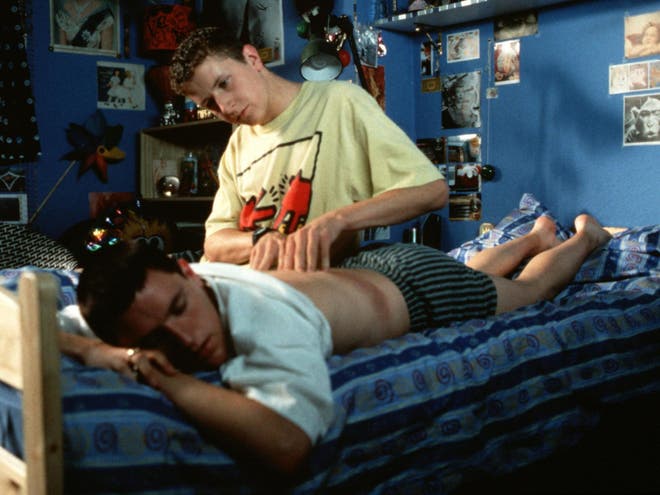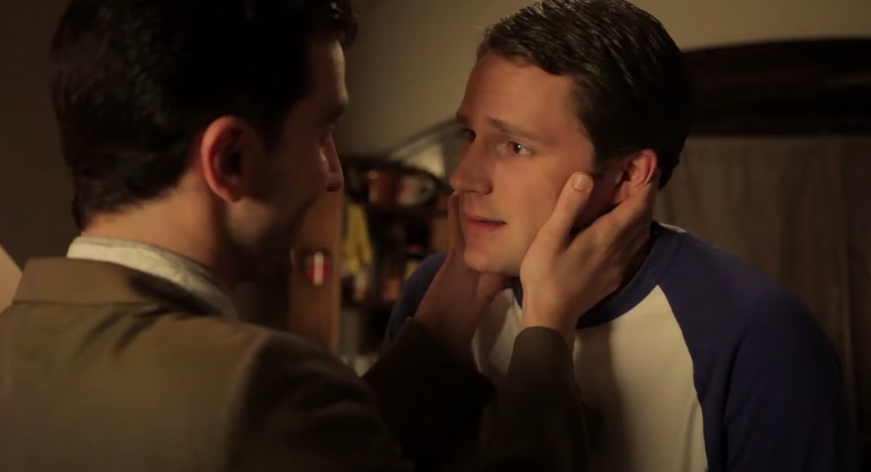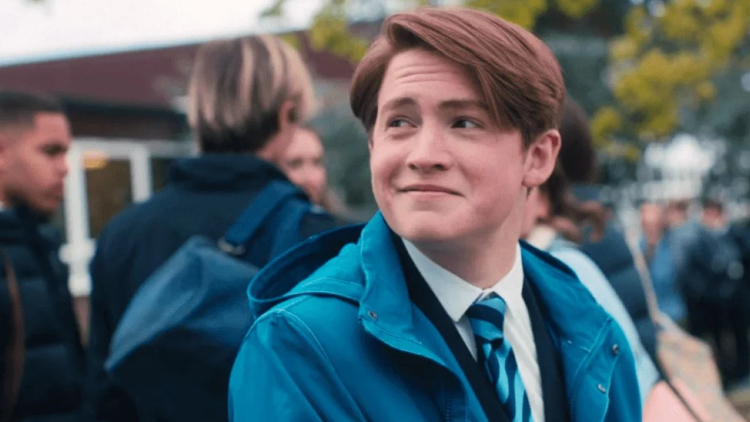In a summer where we have to stay inside, you should watch Beautiful Thing, a forgotten queer masterpiece!
Through a mix of tender but rough-edged realism, Hettie Macdonald makes social dramas that make you care about characters as if they were your friends. Back in 1996, she made Glaad award-winning queer classic Beautiful Thing, a love story about working-class teenagers Jamie (Glen Berry) and Ste (Scott Neal), who live next door to each other on a postwar southeast London council estate.

Written by Liverpudlian Jonathan Harvey, Beautiful Thing was originally a theatre production, which Macdonald directed for London’s Bush Theatre and its subsequent West End run. After the play won five-star reviews and a John Whiting award, Channel 4 asked Macdonald to adapt it into a film – despite the fact she’d never even been on a set before. What followed is one of the most beloved gay-youth movies of the Nineties. “This movie got me through high school” wrote one fan on Reddit. “It made me realise I was normal, or not normal but being not normal is normal,” said another.

Beautiful Thing follows Jamie and Ste as they navigate the difficulties of growing up gay and working class in a society that rarely values anyone who is either. Ste’s drug-dealing brother beats him up.

His dad is an alcoholic who makes Ste cook for him, telling his son his bubble and squeak “looks like fried s***”. Jamie’s mum Sandra (Linda Henry), a pub manager, is dating a washed-up, weed-smoking hippie half her age who says things like: “I saw a video about Woodstock once.” And at school, Jamie is bullied for being an oddball outcast who can’t play football.
Next door is Leah (Tameka Empson), a young black woman who has been expelled from school and spends lots of her free time taking drugs and groaning about how “there’s f***-all to look forward to”. In this environment, it’s hard for Ste and Jamie to be happy – and that’s before anyone finds out they are gay.

Around the time of the film’s release, Macdonald said she used colour as a way of bringing joy to the film, but that she didn’t want this detracting from the naturalistic atmosphere. “The decor is brightened, but only subtly” she told MIT Press back in 1996, “because you still have to believe that these are real people and real lives. We needed to hang on to grittiness. It came down to little details like choosing to make the school uniforms red and not grey, choosing to decorate the flat with bright wallpaper rather than s****y stuff. Choosing to film some scenes by the lake, instead of some more sterile part of the environment. All these things together tend to heighten and brighten the realism.”
Jamie’s mum Sandra eventually finds out about his sexuality via a Gay Times magazine under the bed, and school workbooks covered by his classmates with penises and homophobic slurs. She’s shocked at first, but then she wraps her arms around him and tells him: “I’m not going to put you out like an old bottle.”

The film ends with Jamie and Ste slow dancing in the middle of the estate to Mama Cass’ 1968 chart-topper “Dream a Little Dream of Me”. Leah and Sandra join them. Some neighbours look horrified. Others’ hearts look full. Another rainbow beams down from the sunny sky. It’s a happy ending. It’s one they deserve.
Via Independent






Be the first to reply